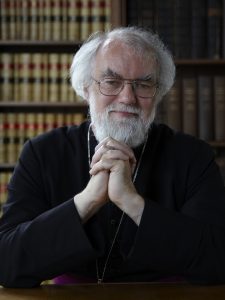 I must have started with Animal Farm, some time in the sixth form. But the real breakthrough was when a friend gave me as a birthday present a couple of volumes of the splendid Penguin collection of letters, essays and reviews. I went on to buy all four volumes, reading them over and over in my years as a graduate student; I can recall absorbing ‘Lear, Tolstoy and the Fool’ over a solitary meal in a cafe in Oxford, with a sense that I was listening to the sort of argument that universities exist to nurture (and frequently don’t).
I must have started with Animal Farm, some time in the sixth form. But the real breakthrough was when a friend gave me as a birthday present a couple of volumes of the splendid Penguin collection of letters, essays and reviews. I went on to buy all four volumes, reading them over and over in my years as a graduate student; I can recall absorbing ‘Lear, Tolstoy and the Fool’ over a solitary meal in a cafe in Oxford, with a sense that I was listening to the sort of argument that universities exist to nurture (and frequently don’t).
I found a fair amount in his writing that remained uncomfortable – the obsessiveness of some of the late polemic, the persisting scorn for those who tried, however clumsily, to keep alive the William Morris legacy of asking about what we now call lifestyle, the grating sneers at the ‘pansy Left’. But there was something that helped me and a good many others define for ourselves an alternative way of being radical in an era of vastly ambitious and rootless activism. It involved (involves) his attention to particulars, his patience with the ways in which our minds are moulded by a cultural past that can’t be either canonised or patronised; and something of his unsparing suspicion of both apocalyptic and administrative solutions to our ills.
He helped me, I suppose, formulate what has ever since been firmly rooted in my thinking about politics (converging with some of what my religious commitments were telling me): the politician who deserves trust is the one who knows that not everything is politics. You do politics well when you’re not thinking only about politics. And if you can’t see this, the risk is that you become dishonest when the merely political fails because there is no ‘humanistic’ background to remind you why you should care.
Dr. Rowan Williams, Baron of Oystermouth, is the former Archbishop of Canterbury and the current Master of Magdalene College, Cambridge. He gave the Orwell Lecture in 2015, entitled ‘War, Words and Reason: Orwell and Thomas Merton on the politics of language’